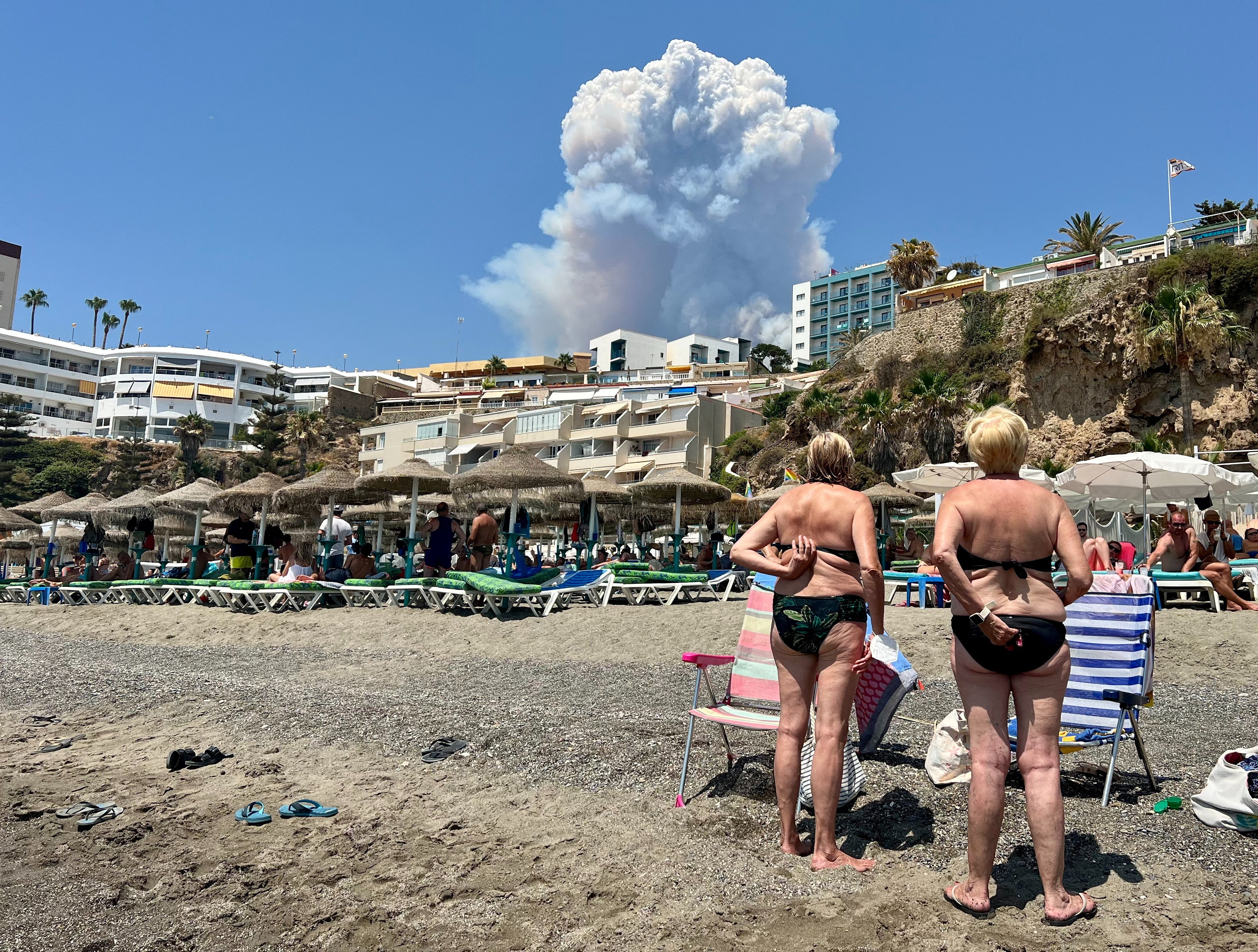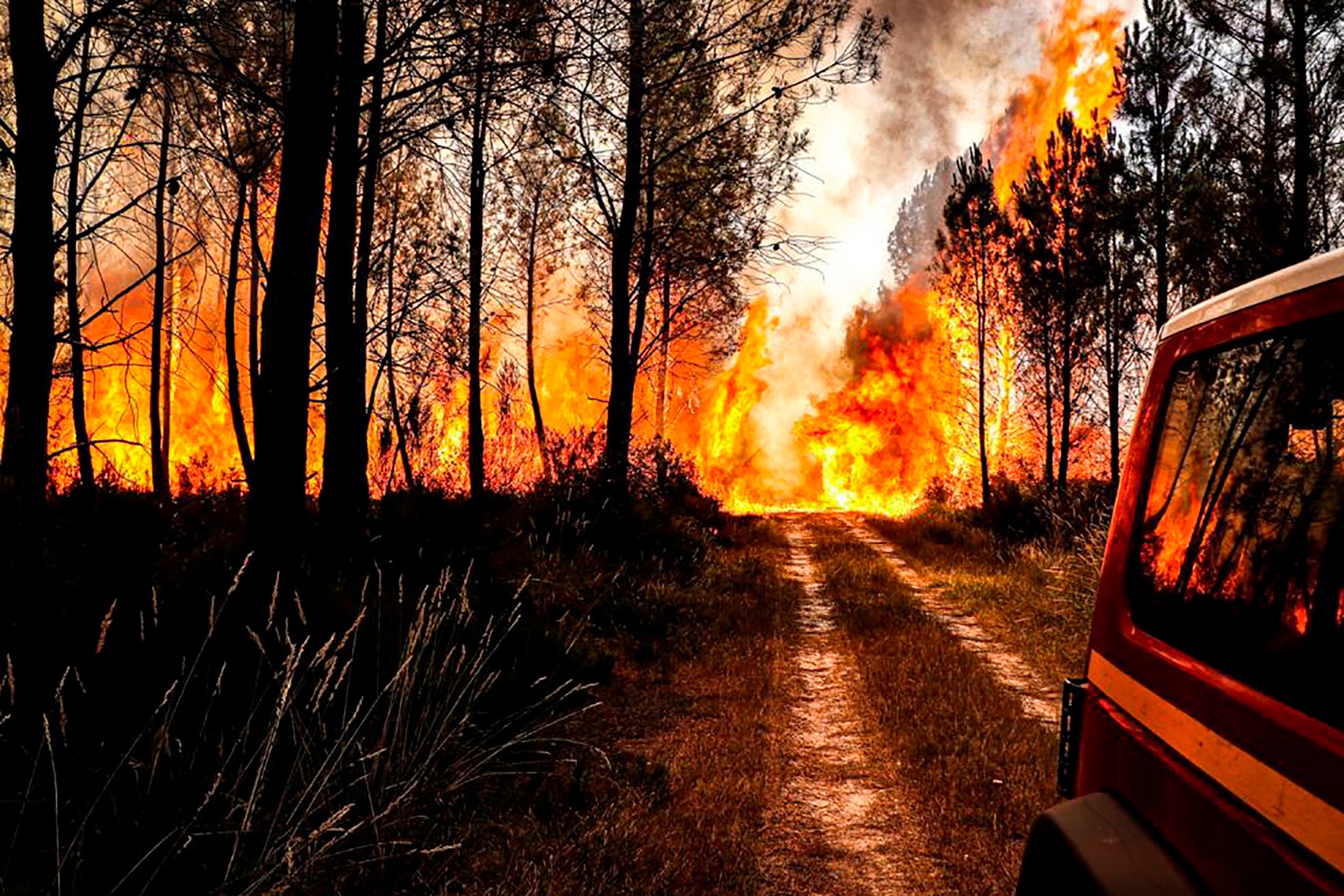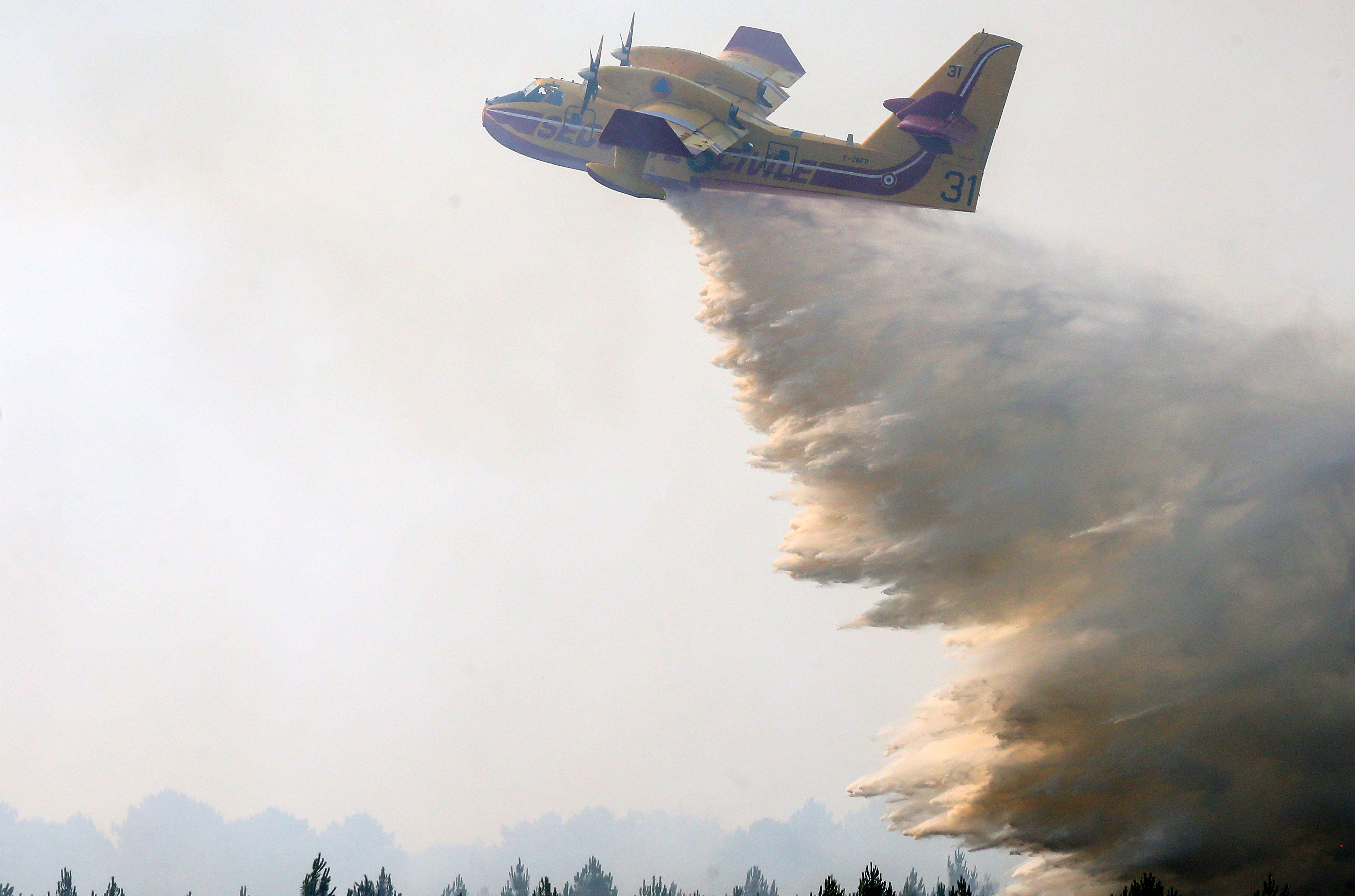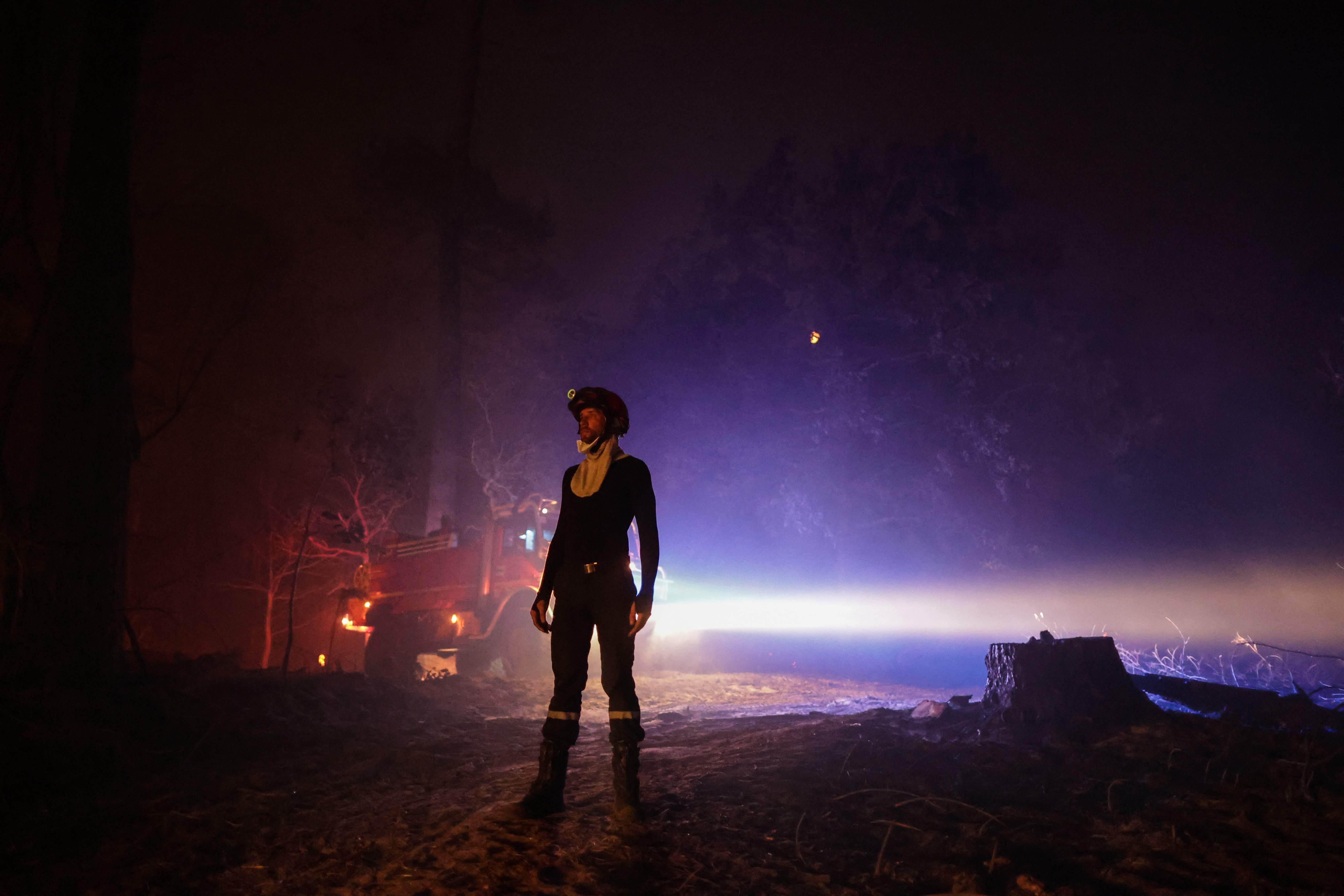Thousands flee wildfires in France as temperatures soar across Europe
Temperatures are so high in the Spanish city of Seville that unions have called for workers to be sent home

As many as 10,000 people have been forced to evacuate because of wildfires in the Bordeaux region of southwest France that have ravaged pine forests near the Atlantic coast.
Up to 1,000 firefighters, using 10 water-dumping planes, were struggling on Friday to contain the fires, which have been blazing for several days.
Large fires were also raging in Portugal and Spain on Friday. Croatia and Hungary also recorded blazes this week as Europe struggled to combat scorching temperatures and strong winds, which have complicated firefighting efforts.
No victims have been reported so far in the French fires, though some homes and cars have been damaged. One of the fires is in woodland just south of the Atlantic resort town of Arcachon, which is a major holiday destination for visitors from both France and beyond during the summer season. The other is in parkland not far from valleys dotted with vineyards, which have struggled to cope with hotter, drier weather than usual this year – a problem the authorities link to climate change.
More than 7,000 hectares (17,000 acres) of land have been consumed by the fires, according to the regional emergency service.

As the fires stretched into a fourth day on Friday, one was partially contained, as some of the firefighting planes and equipment that were supposed to be displayed in Thursday’s Bastille Day parade in Paris were diverted for use in Bordeaux.
Wildfires were also reported in the southeast of the country, and north of Paris.
In Portugal, which has been hit particularly hard this week by fires that have raged across the country, fanned by extreme temperatures and drought conditions, more than 3,000 firefighters battled alongside ordinary citizens desperate to save their homes.
The Portuguese state television network, RTP, reported that the area burnt this year had already exceeded the total for 2021.
More than 30,000 hectares (74,000 acres) of land have been damaged. Ten fires were still raging on Friday, with those in the north of the country causing the most concern. Meanwhile, the authorities said a July high for the country of 47C (117F) was registered on Thursday in the northern town of Pinhao.
In Spain, firefighters battled for a fifth day to try to bring under control a fire started by a lightning strike in the western Las Hurdes area, which has consumed about 5,500 hectares.
Some 400 people from eight villages were evacuated late on Thursday as the flames approached their homes and threatened to spread into the nearby Monfrague National Park.

As many as 17 fires were still raging in Spain on Friday. In northeastern Catalonia, authorities introduced access restrictions in several mountain areas in a bid to stop blazes from spreading.
The European Union has urged member states to prepare for wildfires this summer as the continent faces another extreme weather shift that scientists say is being triggered by climate change.
In the Spanish city of Seville, some unions called for workers to be sent home. Temperatures in many parts of Spain have been topping the 40C (104 F) mark for several days and are expected to continue to do so through to next week.
Seville became the first city in the world to take part in a pilot project that names and categorises heatwaves in an effort to raise awareness of the health hazards caused by extreme heat and the precautions citizens should take.
“Climate-driven extreme heat is killing more people than any other of the climate-driven hazards. Heat is invisible, it is silent and it kills slowly, and people are not aware of it,” said Kathy Baughman McLeod, director of the Arsht-Rockefeller Resilience Centre at the Atlantic Council.
The extreme weather is is also affecting Britain.

The Met Office warned on Friday that record temperatures expected next week pose a risk of “serious illness or danger to life”.
The office issued its first ever “red warning” of extreme heat for Monday and Tuesday, when temperatures in southern England are forecast to reach 37C (98.6F). There is a chance that temperatures could breach the UK’s record of 38.7C (101.7F), which was set in 2019.
Earlier this week, Italy said weather conditions had exacerbated an invasion of locusts in the south of the country.






Join our commenting forum
Join thought-provoking conversations, follow other Independent readers and see their replies
Comments